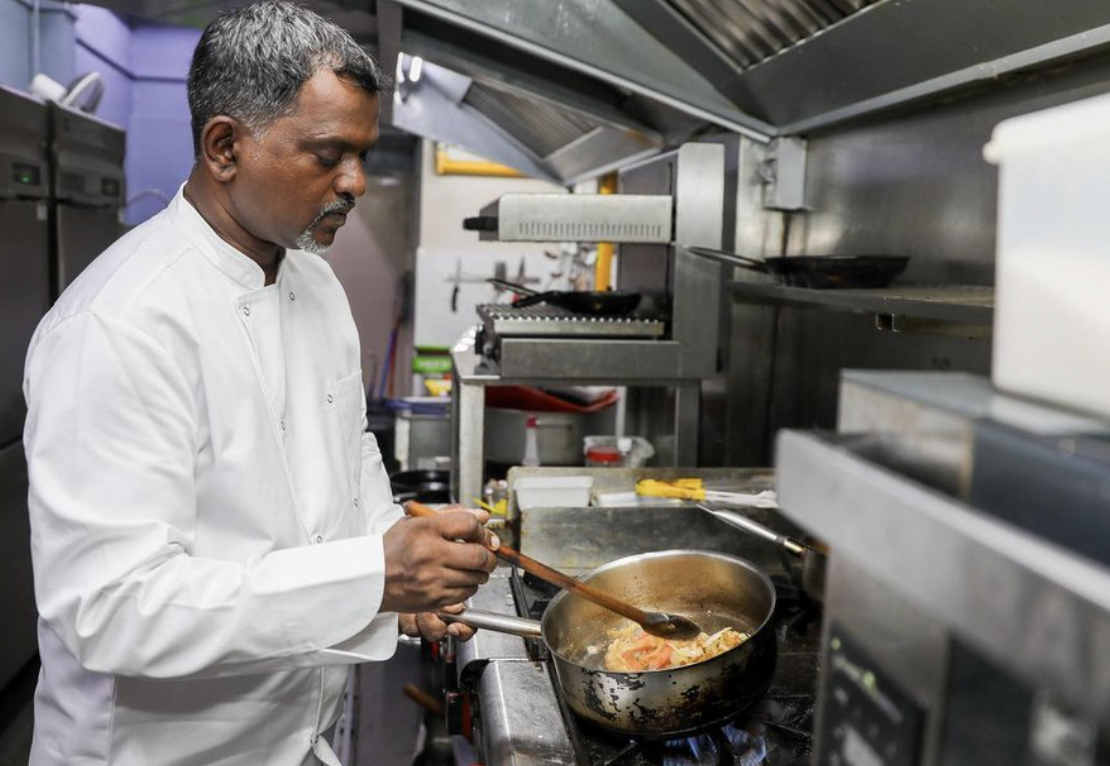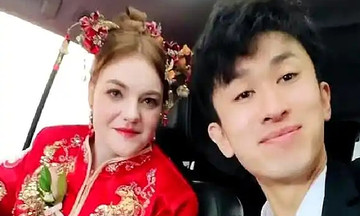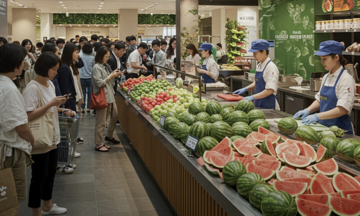At midday, the assistant of 91-year-old Father Louis Loiseau, who was in his final days in Singapore, knocked on the door of The Black Sheep restaurant on Upper Thomson Road.
He requested a bowl of French onion soup with very soft onions. For two months, the assistant visited the restaurant twice a week to pick up this soup. When the messages stopped, Ratha knew the priest had passed away.
Rathakrishnan is the only chef in Singapore dedicated to cooking for the dying. Many clients seek him out after receiving a serious diagnosis, choosing dishes like beef cheeks, duck confit, and red wine as a way to savor their final moments.
"Caring for and serving guests is my mission, whether in times of sorrow or joy," he said. "Food is a symbol of love, especially in food-centric cultures like those in Asia."
 |
56-year-old Rathakrishnan Ramaiyan cooking in his Singapore kitchen. Photo: ST |
56-year-old Rathakrishnan Ramaiyan cooking in his Singapore kitchen. Photo: ST
Dr. Paul Victor Patinadan, an associate professor at Nanyang Technological University specializing in end-of-life care, believes that an individual's thoughts, emotions, values, beliefs, and memories are all intertwined with the food they eat and how it's prepared.
Food, with its powerful evocative nature, becomes a symbolic ending to life's story, as lifelong experiences and preferences can be encapsulated in a few dishes. This also partly explains the curiosity surrounding the last meals of death row inmates.
In late July, 85-year-old Chua Lian Tee finished the lunch her daughter brought, including her favorite durian ice cream.
She was a skilled cook before developing dementia at 70. Now residing in a nursing home since 8/2024, she suffers from chronic kidney disease and uses a wheelchair.
Chua Lian Tee has no dietary restrictions, enjoying dishes like laksa and duck rice. Her daughter, 60-year-old Mary Ong, said she's not worried about health implications but only wants her mother to eat what she enjoys, as food brings her joy.
Chua nearly died from a heart attack a year ago. Therefore, her family cherishes the remaining time with her as a precious gift.
Chef Rathakrishnan Ramaiyan says cooking for the dying is not just a job but an expression of love and care.
He emphasizes that meals are not just about nutrition but also important social events that connect families and patients, even if they can only eat a little. While time is always a challenge as a patient's health can deteriorate suddenly, they still strive to organize gatherings according to the patient's wishes.
For example, when plans to take Mr. Chua Thiam Soon out for a meal had to be canceled, the gathering took place at the hospice with roast suckling pig, fish soup, and fried noodles, attended by family and friends. Rathakrishnan says many patients turn to comfort foods like beef cheeks, duck confit, or red wine as a final treat.
Quek Yanting, a 36-year-old nurse at Dover Park Hospital, says it's important to help patients retain their sense of self through familiar foods. Currently, hospitals respect patient autonomy, even if the food isn't entirely healthy, and the care team's role is only to inform them of the risks.
"Sometimes, having the choice and sharing a meal together is what matters most," Rathakrishnan Ramaiyan said.
Ngoc Ngan (According to ST)












